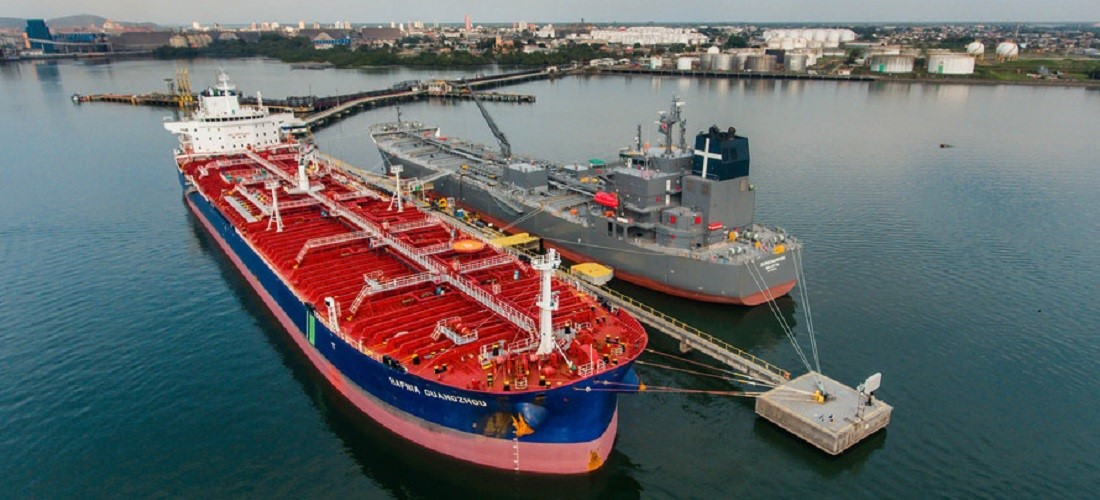
Russia overtakes U.S. in Brazil’s diesel imports
Aug, 25, 2023 Posted by Gabriel MalheirosWeek 202335
Oil companies such as Petrobras and Vibra have been warning about the high volumes of Russian diesel imported by Brazil since February. Experts consulted by Valor say that this increase is temporary and showed signs of slowing down in July.
Felipe Perez, an analyst at the consulting firm S&P Global, said that the instability of the Russian economy prevents contracts from being signed for longer periods. According to him, these purchases are made more because of the good opportunity offered by the current low prices, since Russia is still prevented from doing business with the European Union and the United States: “Diesel coming from Russia to Brazil has an economic advantage. As long as the rules of the game are followed, there is no penalty,” said Mr. Perez.
Under international sanctions due to the war with Ukraine, Russia has been selling crude oil and oil products at a discount to official prices. In February this year, the European Union imposed an embargo on diesel and other oil products from Russia. Crude oil had already been banned since December. Those rules led Russia to redirect the sale of its products, with Brazil since then rising in the rankings, as well as India and China, which have been able to refine Russian oil and resell it.
The G7, a group of the world’s seven most industrialized countries, and the EU imposed a global price ceiling on products purchased from Russia. This limit applies to companies that are not based in the G7 countries or Europe but do business with these regions, such as Brazilian companies. The ceiling is $100 per barrel for the main oil products, such as diesel, and $45 for cheaper ones, such as lubricants.
The volume of diesel imports from Russia to Brazil in 2023 took an upward trend from January to June. While in the first month of the year, Brazil didn’t import the Russian fuel, in February, according to data from the Ministry of Industry, Trade and Services (MDIC), trade reached $98 million. In June, the country purchased $344.6 million.
By way of comparison, Russia has overtaken the United States among the countries that sell diesel to Brazil. In January, the Americans sold $309 million worth of diesel to Brazil, while in June the volume was $80.3 million.
In July, the value of diesel imports from Russia to Brazil was $240.7 million, while sales of the fuel from the United States to Brazil totaled $203.7 million.
According to data from the National Petroleum Agency (ANP) analyzed by Valor, about 25 companies had applications approved by the regulator to import diesel from Russia between January and June. The request doesn’t mean that the company actually imported, but that it was authorized to do so. Braskem, one of those whose requests were granted, said it would not import Russian products in 2023. Refinaria de Manaus, which is also on the list, did not respond.
Announcing its second-quarter results, Vibra, formerly BR Distribuidora, said the increase in fuel entering the country from Russia had put pressure on the company’s margins. However, the company stressed that it preferred not to buy diesel from Russia. Instead of importing, the company opted to cut costs and strengthen its relationship with Petrobras, the fuel distributor’s main partner.
Petrobras’ chief logistics, marketing, and refining officer, Claudio Schlosser, said on the company’s second-quarter earnings call that the company has seen an increase in the flow of fuel from Russia to Brazil. At the time, before Petrobras readjusted fuel prices (increases of 16.3% for gasoline and 25.8% for diesel on August 15), Mr. Schlosser pointed out that Petrobras sees uncertainties regarding the global economy, which affects expectations for energy demand.
The scenario could change in the coming months. According to Mr. Perez, the analyst with S&P Global, Petrobras’ pricing policy has led importers in Brazil to take advantage of the current price of the Russian product, but this practice is short-term, as the United States is still a more reliable partner for long-term contracts. “Independent importers must position themselves to compete with the domestic market. But the advantage of Russian diesel will diminish over time.”
Mr. Perez explains that since the sanctions have been in place for some time, the tendency is for the Russians to prioritize the domestic market. He also points out that there is no problem for Brazilian companies to import diesel from Russia in the midst of geopolitical barriers, as long as they comply with the rules agreed between the United States and the European Union.
The president of the Brazilian Foreign Trade Association (AEB), José Augusto de Castro, said that prices on the international market have returned to normal, compared to what they were at the beginning of the sanctions, and that the need to import from Russia is temporary. “These are one-time operations. It’s difficult to think about long-term business when it comes to Russia and Ukraine. Russia is in an uncomfortable situation and is trying to generate revenue, but it is not a traditional oil trader to Brazil.”
-
Ports and Terminals
Dec, 14, 2022
0
Port of Santos privatization left for 2023 per court audit request
-
Grains
Apr, 11, 2022
0
Maize: USDA announces sale of 1,020m tonnes to China
-
Dec, 08, 2021
0
Argentine stock exchange estimates wheat crop at 22.1m tons
-
Ports and Terminals
Feb, 22, 2024
0
Polar research ship to dock at Rio Grand Port on Sunday

